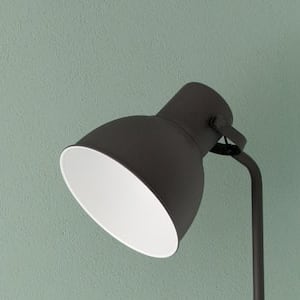stand in one’s own light: Idiom Meaning and Origin
What does ‘stand in one's own light’ mean?
The idiom "stand in one's own light" means to do something that hinders or harms one's own progress, success, or reputation.

Idiom Explorer
The idiom "under one's own steam" means to do something without any assistance or support from others.
The idiom "tell against" means to work or speak in a way that is unfavorable or damaging to someone or something.
The idiom "taste of one's own poison" means to experience the negative consequences of one's own harmful actions or words.
The idiom "take the law into one's own hands" means to bypass the legal system and take matters into one's own control. This is usually done in an illegal or aggressive manner.
The idiom "take matters into one's own hands" means to personally handle or assume responsibility for a situation instead of relying on others to do so.
The idiom "strut one's stuff" means to show off one's abilities or talents confidently and proudly. It implies a sense of self-assurance and a desire to impress others with one's skills or accomplishments.
The idiom "strike one's flag" means to surrender or admit defeat, often used in the context of a confrontation or competition.
The idiom "stick one's neck out" means to take a risk or put oneself in a vulnerable position by expressing an opinion or taking action that goes against the norm or common consensus.
The idiom "stick one's head in the sand" means to ignore or refuse to acknowledge a problem or unpleasant situation, often out of fear or denial.
Self-Inflicted Obstacles: Illusions of Progress
Stand in one's own light is an expression that means obstructing one's own progress or success. It suggests that an individual's actions or choices are preventing them from achieving their goals. While the exact origin of this idiomatic phrase is unknown, its meaning has persisted throughout history and remains relevant today.
One possible interpretation of the idiom is that it highlights the negative consequences of self-sabotage. When individuals engage in self-destructive actions or behaviors that undermine their own success, they effectively hinder their progress. This can manifest in personal relationships, professional endeavors, or even the pursuit of personal goals. The idiom serves as a reminder to consider how one's own actions may impede their advancement.
Furthermore, the idiom can also be applied to situations where individuals are their own worst enemies. By allowing self-doubt, insecurities, or negative thought patterns to overshadow their abilities or potential, they inhibit their own progress. This implies a lack of self-awareness or an inability to recognize one's own strengths and achievements, thus hindering personal growth or success.
The phrase "stand in one's own light" can be related to the idiom "on one's own." When someone is "on their own," it means they are relying solely on themselves and not seeking or receiving assistance from others. By obstructing their own progress or success, individuals who stand in their own light may find themselves having to navigate challenges and overcome obstacles without any external support.
In addition, the idiom "stand in one's own light" can be connected to the phrase "stand on its own." When something can "stand on its own," it means it is capable of existing or being understood independently, without the need for additional explanation or support. Similarly, individuals who hinder their own progress or success may find that they are unable to rely on others to help them overcome obstacles. They must rely on their own abilities and resources to stand on their own and achieve their goals.
The idiom "stand in one's own light" can also be associated with the expression "hold one's own." When someone is able to "hold their own," it means they can compete or succeed in a specific situation or context. However, individuals who hinder their own progress or success may struggle to hold their own and may find themselves falling behind or being surpassed by others.
Additionally, the idiom "stand in one's own light" can be related to the phrase "stand on one's head." When someone is "standing on their head," it means they are doing something difficult or challenging. By obstructing their own progress or success, individuals who stand in their own light are making their own journey more challenging than necessary. They are essentially standing on their head and making things harder for themselves.
Finally, the idiom "stand in one's own light" can be connected to the expression "stand from under." When someone is told to "stand from under," it means they should move out of the way or step aside to avoid being negatively affected by something. Individuals who hinder their own progress or success may need to "stand from under" their own self-defeating behaviors or thought patterns. By recognizing and addressing these negative influences, they can step out of their own way and create a path to success.
The idiom "stand in one's own light" conveys the idea of obstructing one's own progress or success. From self-sabotage to being one's own worst enemy, individuals who hinder their own advancement may find themselves navigating challenges on their own, struggling to hold their own, making things harder for themselves, and needing to step out of their own way. By recognizing and addressing these self-defeating behaviors or thought patterns, individuals can strive to step out of their own shadows and allow their true potential to shine through. While the exact origins of the idiom may remain unknown, its significance as a lesson in self-awareness and personal growth continues to resonate in contemporary English.
Example usage
Examples of how the idiom "stand in one's own light" can be used in a sentence:
- He was offered a promotion but turned it down, thereby standing in his own light.
- She constantly makes excuses for her mistakes, which is only standing in her own light.
- By refusing to accept help, he is effectively standing in his own light and hindering his progress.
More "Misfortune" idioms



